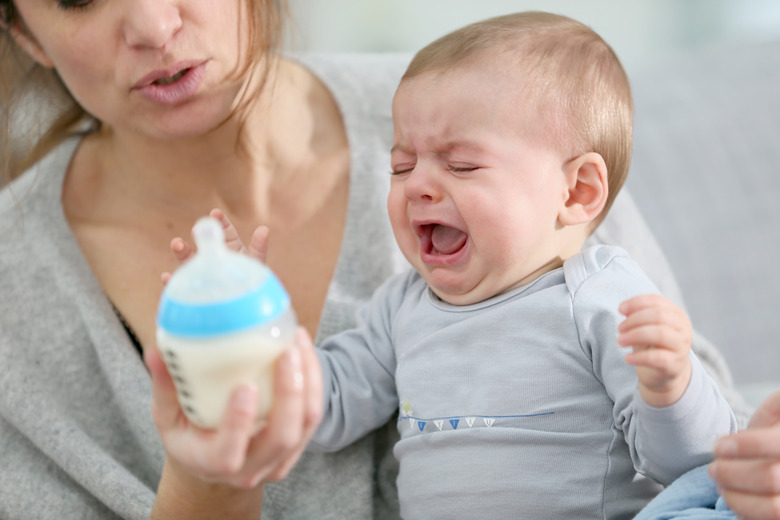80 Percent Of Baby Formulas Contain Arsenic, Horrifying New Study Shows
The Clean Label Project, a nonprofit that advocates for food label transparency, recently investigated 530 products including baby food, infant formulas, toddler drinks, and snacks sold in the past five months. Their alarming set of data revealed that 65 percent of products contained arsenic — and 80 percent of baby formulas tested positive for the toxic chemical.
In addition to the arsenic contamination, 35 percent of products contained lead, 58 percent contained cadmium, and 10 percent contained acrylamide. If only babies could talk — maybe they'd have warned us about the hints of lead tainting their food. It seems the labeling on these products cannot be trusted.
In fact, 60 percent of products labeled "BPA-free" contained significant levels of bisphenol A. These products had been parading as safe while secretly harboring dangerous industrial chemicals.
Pediatrician and toxicologist Jennifer Lowry told USA Today that arsenic and lead chemicals are powerful enough to affect fine motor skills and cognition in children. These mislabeling disasters are more than just little white lies.
The worst offenders included even "healthier" baby food brands, including Gerber, Enfamil, Plum Organics, and Sprout. And the worst products were rice-based puffs, often sold in miniature snack pouches.
The lead contamination in food are an additional concern — the Environmental Protection Agency warns that even low levels of lead in children's blood are connected to lower IQs, stunted growth, behavioral problems, hearing issues, and anemia. That's a laundry list of concerns.
The baby formula might not be breaking any official laws with the contamination. While the Centers for Disease Control and Prevention does not have strict regulations on low levels of lead contaminants in food, there has been controversy over the oversight for some time. The CDC itself issued a statement saying that "even low levels of lead in blood have been shown to affect IQ, ability to pay attention, and academic achievement. And effects of lead exposure cannot be corrected."
While these results are alarming, it's important to note that the Clean Label Project's study was not peer-reviewed — and therefore might not be as scientifically sound as advertised. Additionally, these chemicals have been known to appear in the soil and the production of all types of fruit. And fruit is pretty much a staple in all baby foods.
Regardless, it's reasonable to be alarmed at the thought of feeding these chemicals to your kids.
Many doctors recommend you abstain from store-bought baby food — even those marketed as "clean" or "healthy." Instead, parents are advised to make their own. This means that parents will need to become more informed about which foods that they eat are the best (and the worst) for their babies.
